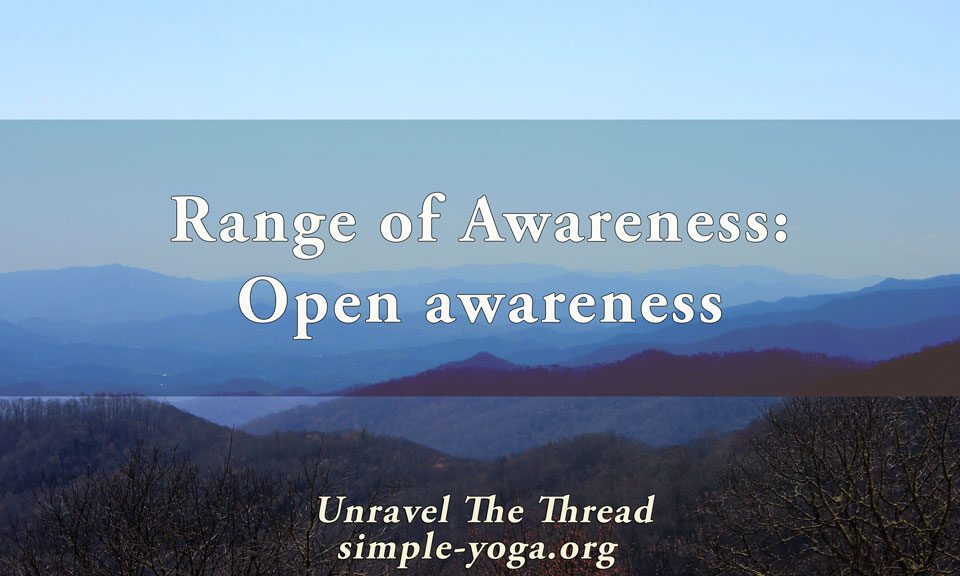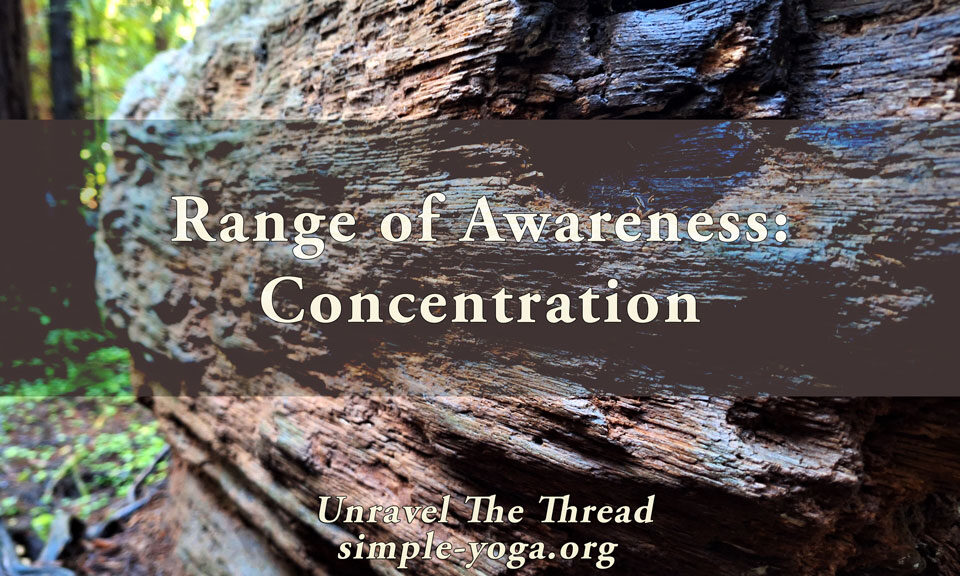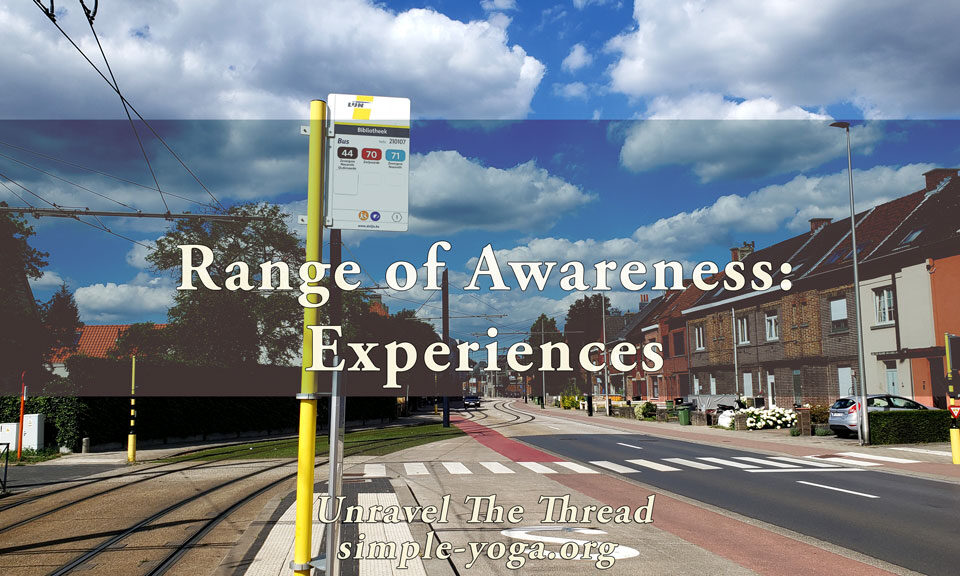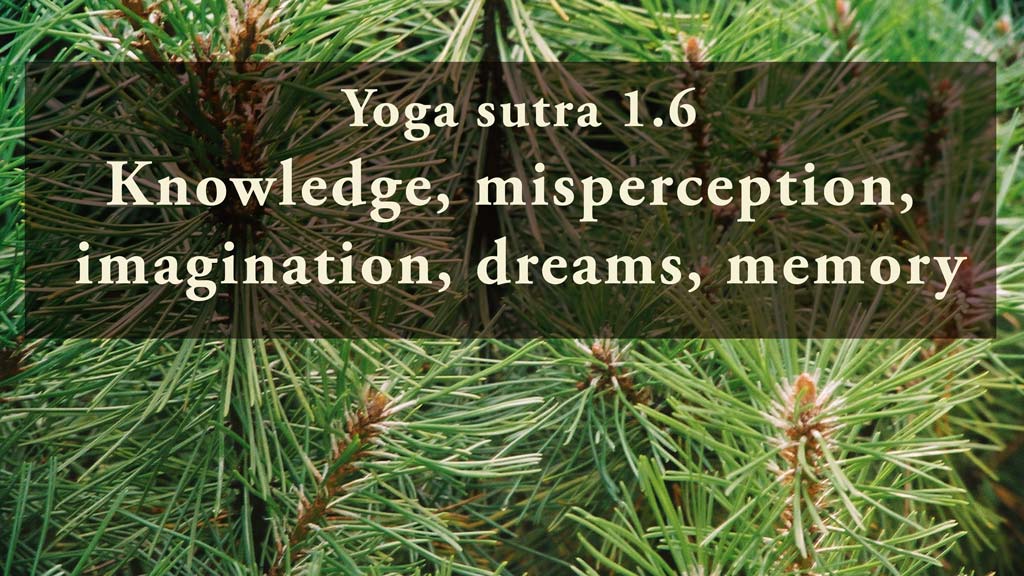
1.6 Knowledge, misperception, imagination, sleep and memory.
April 7, 2019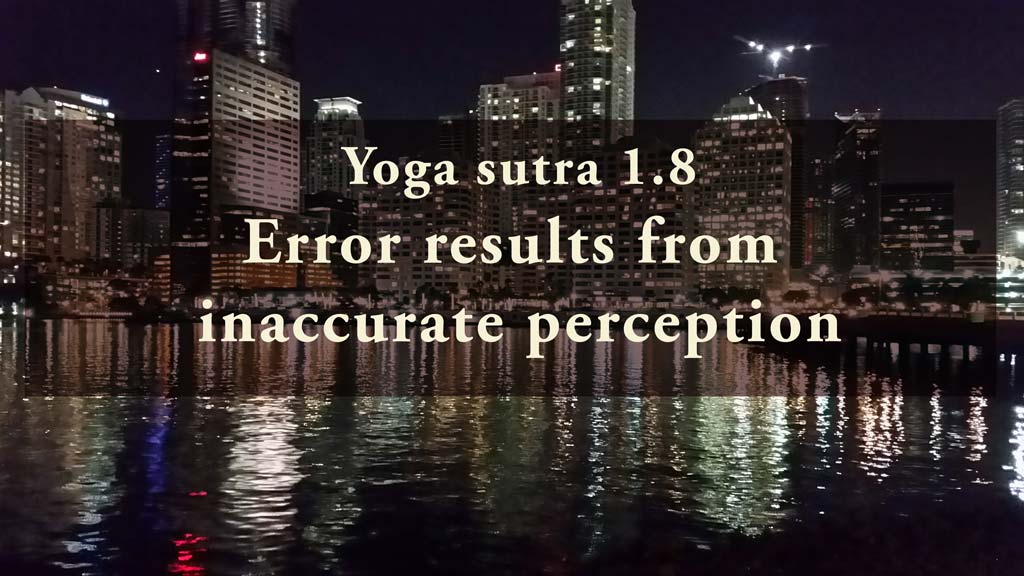
1.8 Error
April 19, 20191.7 Knowledge
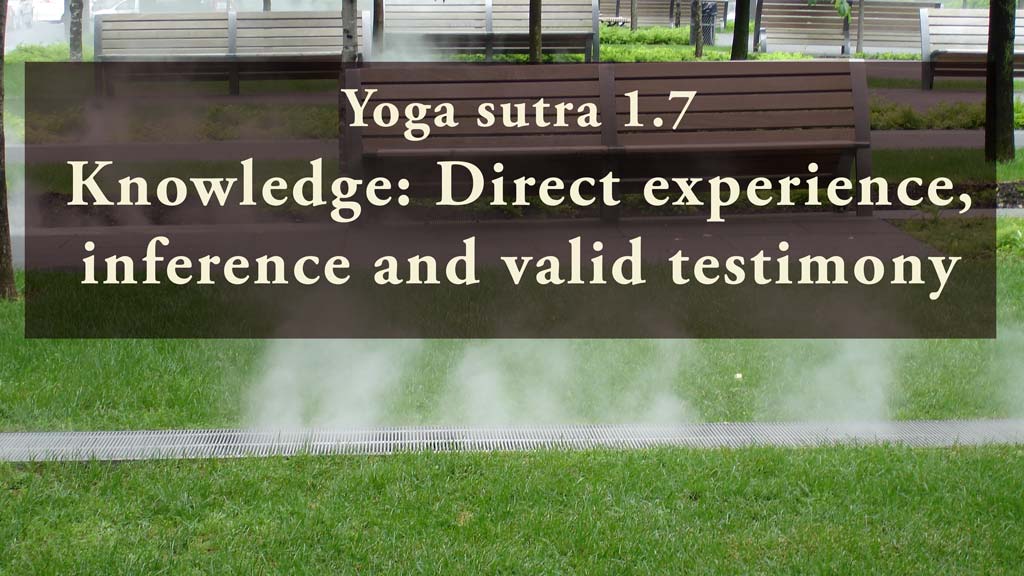
Knowledge (pramana) results from direct experience (pratyaksha), inference (anumana) and transmitted wisdom (agama).
It is often said that the lists in the Yoga Sutra start with the most important element. The first of the ways of being is knowledge. Knowledge is derived from direct experience, inference and wisdom from an authoritative source. When you do something consciously on a regular basis you acquire an understanding that is different from what you know because of reading about it or from listening to somebody else who has done the same thing. For instance, when you are learning to bake bread at home, you may find an instruction that tells you to knead the dough to the right consistency. Even though reading about the process or watching a video about it can give you some useful information, when you have never kneaded dough before, that directive may seem too vague. Listening to the advice of a master baker can offer you useful tips on how to knead. However, all that information will truly become knowledge as you actually try to knead your dough. As you knead consciously and consistently you will notice the different qualities of the dough and how those qualities relate to the final product. Then your direct experience will help you assess and corroborate the information you read or received from other sources. Over time, you may be able to tell the right consistency of the dough from a number of factors including its appearance, its temperature, how it feels to the touch, how it responds when you press on it, and so on. Even if you read a dozen books about the right consistency of bread dough, all that information does not compare to your first-hand experience. Your direct experience is embodied knowledge. Being a whole-body event, the knowledge resulting from your direct experience is almost impossible to describe accurately in words.
Next, inference or logical deduction (anumana), is the second component of correct perception. You use your inferences every single day. For example, if you look out from your window and see dark heavy clouds approaching you might think that it will rain later. Sometimes your inferences are correct and other times they aren’t.
The third source of correct knowledge, agama, is what you know from the wisdom transmitted by a trustworthy source. It is critical to ensure that both conditions are fulfilled, first that it is true wisdom, and second, that the source is trustworthy. These three sources of knowledge are best triangulated to corroborate what you know. You ensure that what you know is verified by your inferences and by the testimony of someone you can trust. In general, correct knowledge is confirmed by common sense. You may find, however, that common sense is not as common as you might think, and that some of us may be inclined to rely on our beliefs rather than trying to gather information through our direct experience. In fact, the current tendency to search on the Internet for all kinds of information may not always include a critical analysis of the quick answers found online.
To embody this verse, consider what you know and how you know it by asking yourself: What do I know? and consider also How do I know what I think I know? Is my knowledge correct and accurate? Are the sources of my knowledge trustworthy? How do I corroborate what I am told? Are my beliefs and opinions true knowledge? You may also investigate if your beliefs and opinions are truly yours. Another avenue of exploration is to ensure that your direct experience, your inferences and trustworthy testimony agree. When you pay attention to your words, actions and interactions can you discern the kind of knowledge that they are based on? One more avenue for reflection is the question: What is common sense? Remember that these questions, rather than directing you to find a specific answer, they are an invitation to discover your own assumptions, beliefs and habits and their role in your ability to be present.
Interestingly, one of the meanings of the word pramana in Sanskrit is oneness or unity. Contemplate the possibility that true knowledge creates a feeling of unity, harmony and wholeness.
As usual you can also chant this sutra to feel its vibrations directly in your whole being. You may chant in the traditional way:
प्रत्यक्षानुमानागमाः प्रमाणानि ॥७॥ pratyakṣānumānāgamāḥ pramāṇāni
or you can choose to chant each word individually:
- pratyakṣa
- ānumāna
- āgamāḥ
- pramāṇāni
Unravel the thread is now available as a book!
If you find Simple-Yoga.org and Unravel the thread useful, consider supporting my labor with a donation, you may also donate using PayPal or Venmo. Thank you!

